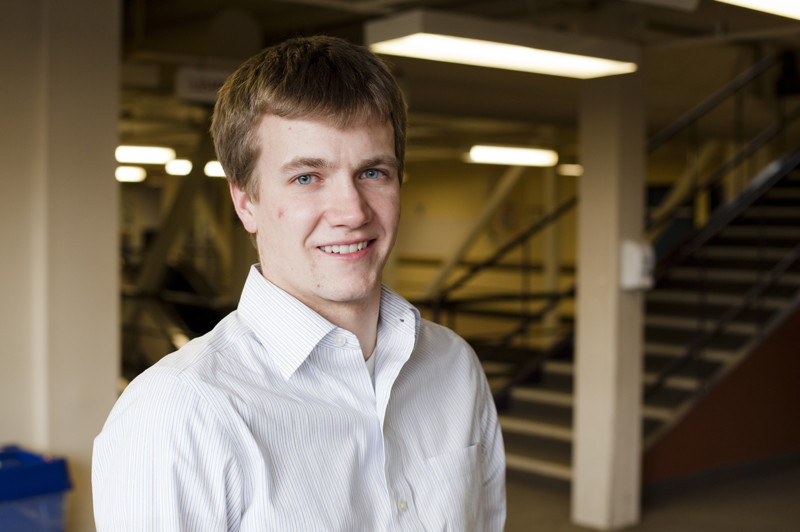Business school calls for tuition increase
Dean says additional funds are needed for competitions and co-op programs
Business and administration students will decide this week whether or not to approve a referendum to raise tuition fees.
The Business Administration Students Association (BASA) of the University of Winnipeg is facilitating a referendum vote to increase tuition from around $14,000 to little more than $16,000 over a four-year period.
Voting closes 6 p.m. on Thursday, March 29.
Michael Percy, interim dean of business and economics, proposed the 12 per cent increase after observing a need for better accessibility to competitions and co-op programs, coupled with the anticipation of a university-wide financial crisis.
“I was struck by the quality and drive of the students here, but had the sense that there wasn’t the vehicle that they had to project themselves in case competitions,” he said.
In comparison, the University of Manitoba’s Asper School of Business charges students more than $20,000 in tuition, according to Percy.
“I am just amazed that the school and business department could do so much with so little,” said Percy.
Percy anticipates the hike could raise up to $225,000 for the school.
The funds would go towards hiring a director for the cooperative placements office, financing travel and fees for student competitions, support for BASA services, additional library resources, and computers and printers in the Buhler Centre, said Percy.
Percy and central administration have agreed to ensure budgetary transparency if the referendum is approved.
“Each year the dean would be locked into providing an absolute accounting for where the incremental funds go,” said Percy.
The extra cost would be extremely profitable for students, said Percy.
“I’m appreciative of the fact that nobody wants to pay more. But a good, strong, well-run, more extensive co-op program enhances the job opportunities for all students,” said Percy.
BASA president Matthew Friesen said the association maintains a neutral stance on the referendum, and is facilitating the vote in order to ensure transparency.
While BASA did not suggest the referendum, the association has been searching for an improvement to program quality all year.
“We have great professors, we have quality students. The unfortunate part is these students are getting limited opportunities to showcase that talent,” said Friesen.
Co-op programs provide crucial experiential learning, and business competitions facilitate a sense of pride and camaraderie among students, he added.
Increasing tuition would help pay for these essential experiences. However, he noted the provincial government also has an obligation to support students.
“This would be a good first step but I wouldn’t encourage anybody at the university to allow that to be the only solution,” said Friesen.
Theo Papagiannopoulos, a third-year business student, said while improvement to programming is needed, he doubts students will appreciate such a large tuition increase.
“Twelve per cent is a bit steep. I’m sure a lot of people will have problems with that,” he said.
Papagiannopoulos is also wary of trusting the accountability of administration.
“I don’t know how well these things are monitored. Once we have the increase, how can we know exactly what it’s going to go to?” he said.
Published in Volume 66, Number 25 of The Uniter (March 28, 2012)







